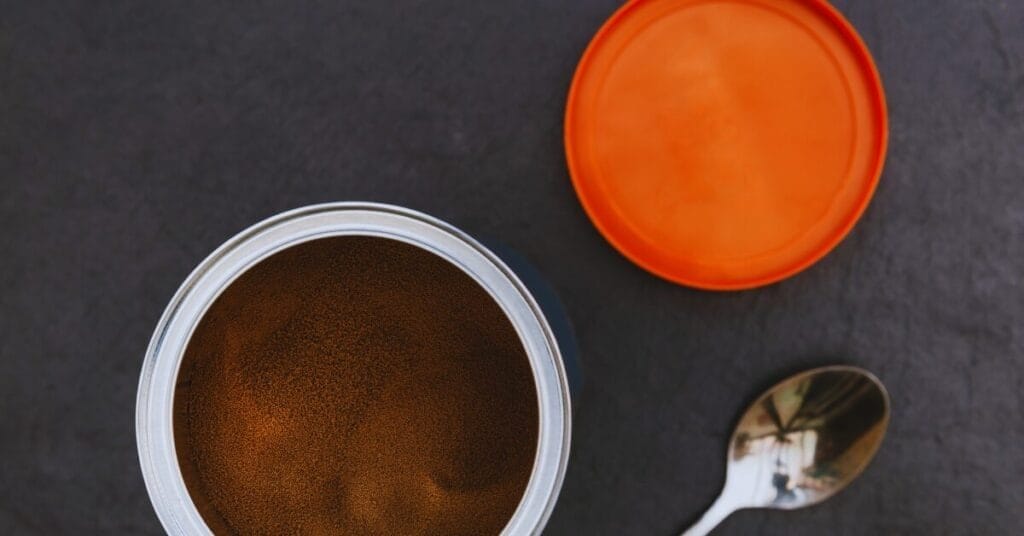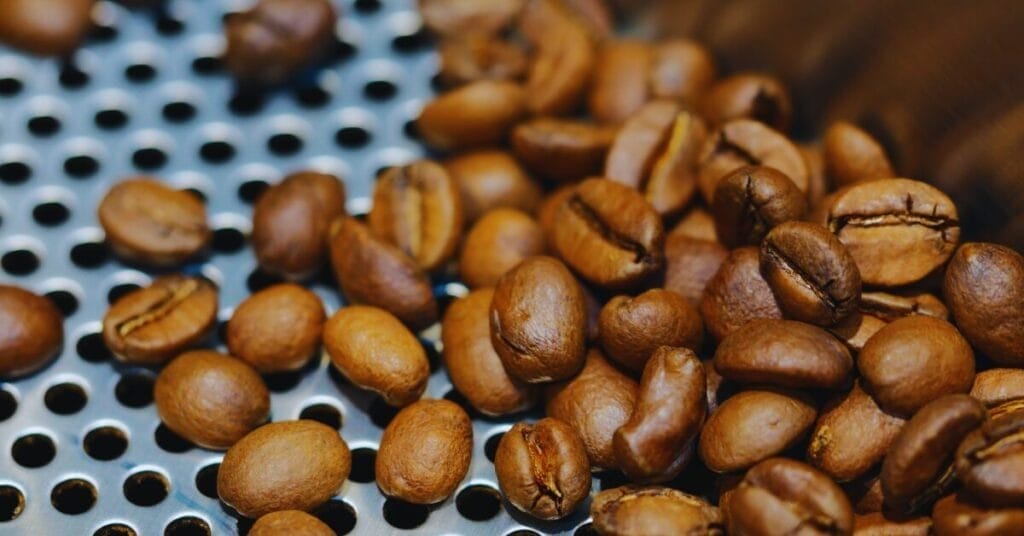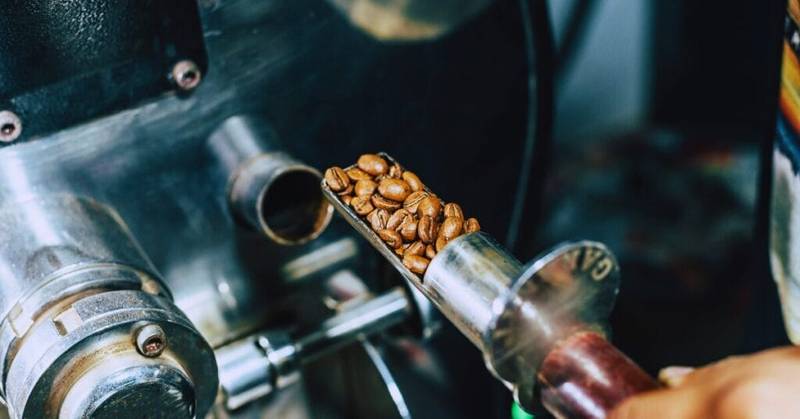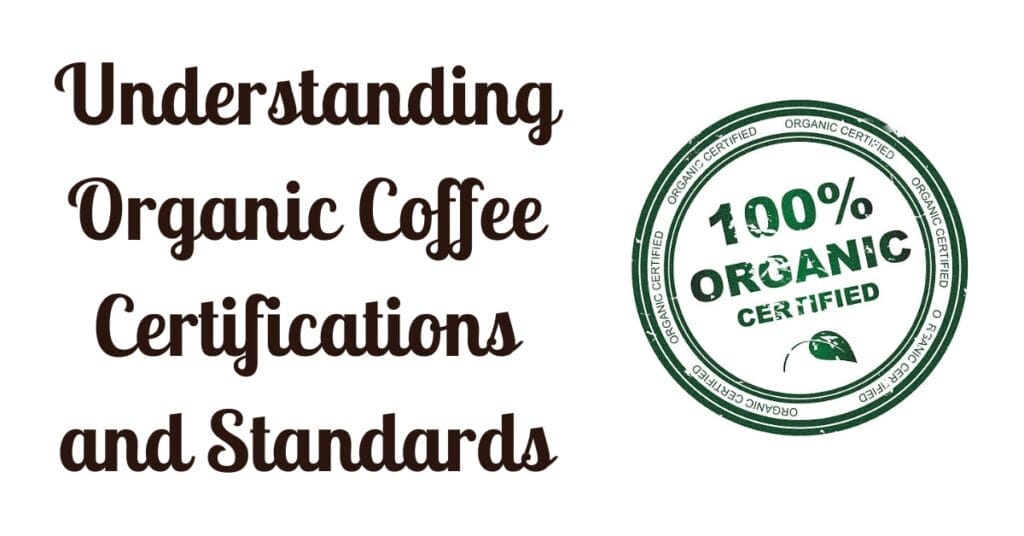In the vibrant world of coffee enthusiasts, a pressing question often echoes through the steamy air: “Does organic coffee have caffeine?”
This inquiry reflects both a desire for flavorful brews and a curiosity about the health implications of caffeine consumption.
Today, we explore this captivating topic, aiming to uncover whether organic coffee packs the same caffeinated punch as its non-organic counterparts.
As we navigate this aromatic journey, our focus remains on demystifying the caffeine content of organic coffee. So, does organic coffee have caffeine?
Join us as we sip through the answers and delve into the nuanced world of organic coffee, unraveling its secrets while contemplating its potential impact on stomach health—a crucial aspect often overlooked in the quest for the perfect cup.
Let’s savor the complexities and nuances, one cup at a time.
As an affiliate site, we are associated with the amazon. We might receive a commission when you use links or recommendations on our website to make qualified purchases. The cost you pay for the goods or services is unaffected by this.
Table of Contents
Does Organic Coffee Have Caffeine || 10 Facts

In the quest for the perfect cup of joe, coffee enthusiasts often ponder a crucial question: “Does organic coffee have caffeine?”
This inquiry goes beyond mere curiosity, tapping into the broader dialogue about health-conscious choices and the desire for a flavorful yet wholesome coffee experience.
Let’s embark on a caffeinated journey as we unravel ten facts about the caffeine content in organic coffee.
10 Facts About Caffeine in Organic Coffee
1. Varied Caffeine Levels
Organic coffee, like its conventional counterpart, contains caffeine. Still, the exact levels can vary based on factors such as bean type and brewing method.
2. Bean Origins Matter
The source of organic coffee beans influences caffeine content. Beans from Arabica plants generally have lower caffeine levels than those from Robusta plants.
3. Roasting Impact
The degree of roasting affects caffeine content. Contrary to popular belief, darker roasts can have slightly less caffeine than lighter roasts due to the longer roasting process.
4. Organic Certification
While the organic label emphasizes environmentally friendly farming practices, it doesn’t necessarily correlate with higher or lower caffeine content in the final product.
5. Brewing Techniques
The brewing method plays a role. Cold brews, for instance, may have a different caffeine concentration than traditional hot brewing methods.
6. Decaffeination Process
Even decaffeinated organic coffee undergoes a decaffeination process, although residual caffeine may still be present, albeit in smaller amounts.
7. Health Benefits
Organic coffee is often chosen for its perceived health benefits. Still, its caffeine content can contribute to improved mental alertness and mood.
8. Individual Sensitivity
Caffeine affects individuals differently, and some may be more sensitive to its stimulating effects, regardless of whether the coffee is organic.
9. Environmental Impact
Organic coffee aligns with environmentally friendly practices, supporting ecosystems that can indirectly impact coffee flavor and quality.
10. Balancing Act
For those seeking a middle ground, moderation is key. Enjoying organic coffee mindfully allows for a harmonious blend of flavor and caffeine satisfaction.
The journey through the realm of organic coffee and its caffeine content reveals a nuanced interplay of factors.
From bean origins to brewing techniques, each element contributes to the coffee experience, inviting enthusiasts to savor the complexity and richness that organic coffee offers.
Understanding Caffeine in Organic Coffee || Unveiling the Buzz

In the realm of organic coffee, the question lingers: “Does organic coffee have caffeine?”
This exploration dives into the intricacies of caffeine content in organic brews, unraveling the symbiotic relationship between organic certification and that invigorating morning kick.
1. Organic Certification vs. Caffeine Levels
The organic label doesn’t dictate caffeine content; factors like bean type, roasting, and brewing methods play crucial roles.
2. Bean Variety Matters
The source of organic coffee beans, whether Arabica or Robusta, significantly influences caffeine levels.
3. Roasting Techniques
Surprisingly, darker roasts don’t always mean more caffeine; roasting can impact the final caffeine content.
4. Brewing Influence
The brewing technique directly affects how much caffeine your cup contains, from cold brews to traditional hot methods.
5. Harmony of Flavor and Kick
Organic coffee maintains its rich flavor profile while offering the desired energizing effect, making it a delightful part of daily rituals.
How Organic Certification Impacts Caffeine Levels || Brewing Realities

The question resonates loudly in the captivating world of coffee exploration: “Does organic coffee have caffeine?”
This deep dive into the brewing realities examines the intricate relationship between organic certification and the caffeine levels found in your daily cup.
Join us as we uncover the nuances behind the buzz, deciphering how the journey from bean to brew impacts the caffeine content of your beloved organic coffee.
1. Certification Isn’t the Sole Deciding Factor
Contrary to popular belief, organic certification doesn’t directly correlate with higher or lower caffeine content.
The certification primarily focuses on farming methods, emphasizing environmental sustainability.
2. Bean Type Matters
The choice between Arabica and Robusta beans, common in organic coffee, significantly influences caffeine levels. Arabica generally contains less caffeine than its robust counterpart.
3. Roasting Profiles
While organic coffee is often associated with lighter roasts for flavor preservation, roasting can impact caffeine content.
Darker roasts may have slightly less caffeine due to the longer roasting duration.
4. Environmental Impact
Organic certification promotes eco-friendly farming practices.
This focus on sustainability indirectly affects the coffee’s flavor profile. Yet, caffeine content remains more closely tied to factors like bean type and roasting.
5. Moderation in Enjoyment
The impact of organic certification on caffeine levels in coffee is a complex dance of factors.
For those seeking a balance between sustainability and the caffeine kick, mindful moderation ensures an enjoyable and conscious coffee experience.
The Surprising Relationship with Caffeine || Roasts and Richness

A pressing question echoes in the aromatic journey through organic coffee: “Does organic coffee have caffeine?”
As we explore the nuances of coffee craftsmanship, our focus shifts to the surprising relationship between roasts and caffeine levels.
Join us in uncovering the secrets behind the rich flavors and unexpected connections that define your daily cup of organic coffee.
1. Darker Roasts, Less Caffeine
Contrary to common perception, darker roasts often contain slightly less caffeine. The extended roasting process can lead to a reduction in the stimulant’s overall presence.
2. Lighter Roasts, More Vibrancy
Lighter roasts, favored for preserving the bean’s unique flavors, may possess higher caffeine levels. The shorter roasting time retains the natural vibrancy but may intensify the caffeinated kick.
3. Bean Type Influence
The type of beans used, Arabica or Robusta, plays a pivotal role.
Organic coffee enthusiasts may discover that Arabica beans, often chosen for their nuanced flavors, generally contain less caffeine than robust varieties.
4. Balancing Act
The relationship between roasting and caffeine content is a delicate balancing act.
Finding the perfect roast aligns with flavor preferences and desired caffeine levels, offering a tailored experience for coffee lovers.
5. Personalized Enjoyment
Ultimately, the surprising connection between roasts and caffeine levels underscores the personalization of your coffee journey.
Whether you savor a dark, bold cup or a light, vibrant brew, understanding this relationship allows you to craft a coffee experience that aligns with your taste and caffeine preferences.
Does Organic Coffee Have Caffeine || Pros and Cons

Embarking on the quest for the perfect cup of java, many enthusiasts ponder, “Does organic coffee have caffeine?”
In this exploration of organic coffee, we decipher the presence of caffeine and delve into the pros and cons of choosing this conscious and sustainable brew.
Join us as we navigate organic coffee’s nuanced landscape, evaluating its advantages and potential drawbacks.
Pros of Organic Coffee and Caffeine
1. Sustainable Farming Practices
Organic coffee is grown using environmentally friendly methods, promoting biodiversity and reducing the ecological footprint of coffee cultivation.
2. Health-Conscious Choice
The absence of synthetic pesticides and fertilizers contributes to a healthier cup, with fewer chemical residues that might be present in conventionally grown coffee.
3. Rich Flavor Profile
Organic coffee often boasts a more nuanced and complex flavor profile. The emphasis on sustainable farming practices can enhance the overall taste experience.
4. Support for Fair Trade
Many organic coffee producers adhere to fair trade principles, ensuring that farmers receive fair compensation for their labor and fostering ethical and equitable trading relationships.
5. Reduced Environmental Impact
By opting for organic coffee, consumers contribute to reducing soil and water pollution and supporting ecosystems and wildlife.
Cons of Organic Coffee and Caffeine
1. Higher Cost
Organic coffee cultivation often involves more labor-intensive and expensive practices, increasing prices than conventionally grown coffee.
2. Variable Quality
While organic coffee is renowned for its rich flavors, the quality could be more consistent due to weather conditions and alternative farming methods.
3. Lower Yields
Organic farming practices may result in lower crop yields compared to conventional methods, impacting the overall availability of organic coffee.
4. Limited Variety
The selection of organic coffee varieties may be more limited compared to conventional options, affecting the choices available to consumers.
5. Caffeine Sensitivity
For those with heightened sensitivity to caffeine, even though organic, the stimulant’s presence may still lead to adverse effects if consumed in excess.
Demystifying Caffeine in Organic Decaf Coffee || Decaf Dilemma

Navigating the intricate world of organic coffee brings us face to face with the decaf dilemma, prompting the question: “Does organic decaf coffee have caffeine?”
In this exploration, we unravel the complexities surrounding decaffeination processes and delve into the nuances of choosing a caffeine-free yet organic brew.
1. Decaffeination Methods
Organic decaffeinated coffee undergoes various decaffeination processes, such as the Swiss water process or CO2 extraction, to remove most of the caffeine while preserving flavor.
2. Residual Caffeine
Despite meticulous decaffeination, trace amounts of caffeine may remain in organic coffee. However, these levels are significantly lower than those found in regular coffee.
3. Organic Certification
The decaffeination process keeps the organic certification of coffee beans intact. Organic decaf coffee ensures a commitment to sustainable and chemical-free farming practices.
4. Flavor Preservation
Organic decaf coffee aims to retain the rich flavor profile associated with organic beans, providing a satisfying cup without the stimulating effects of caffeine.
5. Caffeine-Sensitive Friendly
Opting for organic decaf coffee addresses the needs of caffeine-sensitive individuals, offering a mindful choice for those looking to enjoy the ritual of coffee without the stimulating side effects.
In the decaf dilemma, organic coffee emerges as a viable solution, providing a harmonious blend of organic principles, rich flavor, and reduced caffeine content for a satisfying and mindful coffee experience.
Does Organic Coffee Have Caffeine || Experts Views

As coffee enthusiasts navigate the landscape of their favorite brew, the query often arises: “Does organic coffee have caffeine?”
To shed light on this topic, we turn to the insights of coffee experts who offer nuanced perspectives on the presence of caffeine in organic coffee.
1. Environmental Coffee Expert – Dr. Greenfield
Insight: Dr. Greenfield emphasizes that while organic coffee strongly emphasizes environmentally friendly farming, the presence of caffeine is inherent to the coffee bean itself.
Quote: “Organic coffee, with its eco-conscious cultivation, doesn’t alter the caffeine content; it’s a natural component of the coffee plant.”
2. Flavor Profiling Specialist – Sarah Brewster
Insight: Sarah Brewster, a flavor profiling specialist, notes that the absence of synthetic pesticides and fertilizers in organic coffee contributes to a purer flavor profile.
Quote: “Organic coffee often boasts a more refined taste, but it’s crucial to recognize that the caffeine is an integral part of what makes coffee, well, coffee.”
3. Sustainability Advocate – Javier Eastman
Insight: Javier Roastman, a sustainability advocate in the coffee industry, applauds the organic movement but urges consumers to be aware that the certification primarily pertains to farming practices.
Quote: “Choosing organic coffee supports sustainable farming, but the caffeine content is determined by the beans and the roasting process, not the certification.”
4. Health and Wellness Consultant – Dr. Harmony Beanfield
Insight: Dr. Beanfield emphasizes that the health benefits associated with organic coffee go beyond caffeine considerations, promoting overall well-being.
Quote: “While the caffeine in organic coffee contributes to mental alertness, it’s crucial to appreciate the holistic health benefits organic coffee brings.”
5. Quality Assurance Specialist – Alex Espresso
Insight: a quality assurance specialist, Alex Espresso, underscores that organic certification ensures a commitment to specific standards but doesn’t directly dictate caffeine levels.
Quote: “Organic coffee meets stringent ethical and environmental standards, but the caffeine content is more about the type of bean and how it’s processed.”
In organic coffee, these expert views collectively highlight the multifaceted nature of the caffeine discussion, urging consumers to appreciate both the environmental benefits and inherent characteristics of their chosen brew.
FAQs || Does Organic Coffee Have Caffeine
How much caffeine is in organic coffee?
The caffeine content in organic coffee varies, but a standard cup typically contains about 95 mg of caffeine.
Does organic mean no caffeine?
No, organic coffee can still contain caffeine; organic refers to the farming methods, not the absence of caffeine.
Is organic coffee better for you than regular coffee?
Organic coffee is often considered a healthier choice due to its eco-friendly cultivation, but its overall health benefits are subjective.
What does organic mean in coffee?
In coffee, “organic” refers to beans grown without synthetic pesticides or fertilizers, emphasizing environmentally sustainable farming practices.
Conclusion
The question persists in the intricate tapestry of coffee exploration: “Does organic coffee have caffeine?”
Our journey through expert insights and detailed examinations reveals that organic certification, while synonymous with sustainable practices, doesn’t alter the intrinsic caffeine content.
As coffee lovers savor the rich flavor profiles and environmental benefits of organic coffee, caffeine remains an inherent companion.
In this nuanced discourse, the mottled roasted charm of organic coffee beckons, providing a sensory adventure that transcends labels.
So, whether drawn to the complexities of flavor or the conscious choices embedded in each sip, the answer to “Does organic coffee have caffeine?” echoes through the satisfying ritual of a well-brewed cup.







